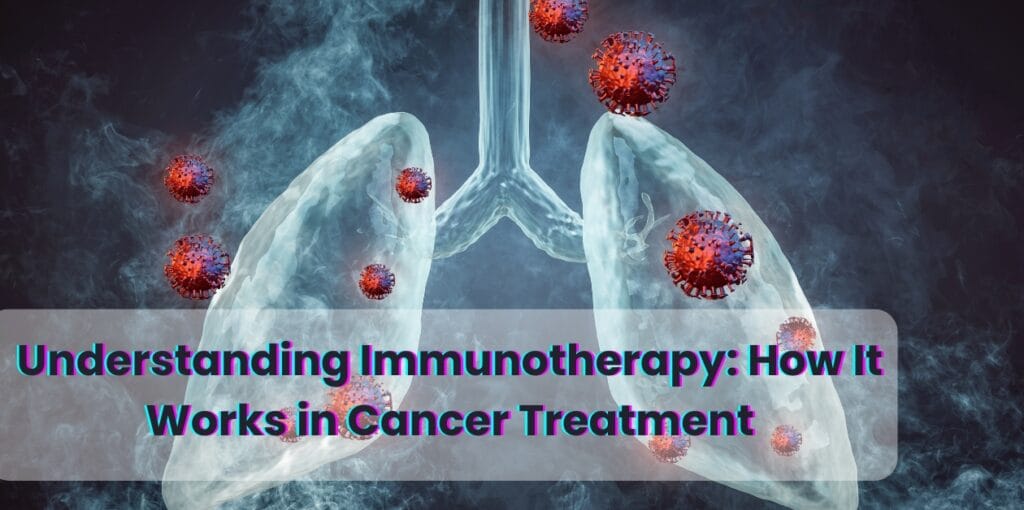Understanding Immunotherapy: How It Works in Cancer Treatment

At Pi Health Cancer Hospital, we are committed to providing the most advanced and effective treatments for cancer patients. One of the most exciting developments in cancer therapy is immunotherapy—a groundbreaking approach that leverages the body’s own immune system to combat cancer. In this comprehensive guide, we will explore what immunotherapy is, how it works, its various types, benefits, challenges, and its future in cancer treatment.
What is Immunotherapy?
Immunotherapy is a form of cancer treatment that utilizes the body’s immune system to identify and attack cancer cells. Unlike traditional treatments like chemotherapy and radiation, which target cancer cells directly, immunotherapy enhances the body’s natural defenses to fight the disease. This innovative approach has shown remarkable success across various types of cancer, including melanoma, lung cancer, and specific blood cancers such as leukemia and lymphoma.
How Does Immunotherapy Work?
The immune system is designed to protect the body from harmful invaders, including cancer cells. However, cancer cells have developed ways to evade the immune system’s detection, either by masking themselves or by creating an environment that suppresses immune responses. Immunotherapy addresses this issue by:
- Boosting the Immune System: Certain immunotherapies aim to enhance the immune system’s overall activity. For example, checkpoint inhibitors work by blocking proteins that inhibit immune cells from attacking cancer cells. By removing these “brakes,” the immune system can more effectively target and destroy cancer cells.
- Targeting Specific Cancer Cells: Other forms of immunotherapy involve engineering immune cells to specifically target cancer cells. CAR-T cell therapy, for instance, involves modifying a patient’s T cells in the lab to recognize and attack cancer cells more precisely. This approach has shown impressive results, particularly in treating certain types of blood cancers.
- Introducing New Immune Components: Cancer vaccines and monoclonal antibodies are used to introduce new immune components into the body. Cancer vaccines can help the immune system recognize cancer cells as threats, while monoclonal antibodies target specific antigens on cancer cells, marking them for destruction.
- Modifying the Tumor Microenvironment: Some therapies work by altering the environment around the tumor to make it less conducive for cancer cells and more favorable for immune cell activity.
Types of Immunotherapy
- Checkpoint Inhibitors: These drugs block proteins that inhibit immune cells from attacking cancer cells. Notable checkpoint inhibitors include pembrolizumab (Keytruda) and nivolumab (Opdivo), which have demonstrated effectiveness in treating various cancers, including melanoma and non-small cell lung cancer.
- CAR-T Cell Therapy: This treatment involves modifying a patient’s T cells to express a chimeric antigen receptor (CAR) that targets specific cancer cells. CAR-T therapies, such as Kymriah and Yescarta, have shown significant success in treating certain blood cancers by redirecting T cells to target and destroy cancer cells more effectively.
- Cancer Vaccines: Therapeutic cancer vaccines aim to stimulate the immune system to target cancer cells. For instance, the HPV vaccine helps prevent cancers caused by human papillomavirus (HPV), while other cancer vaccines are being developed to treat existing cancers by training the immune system to recognize and fight cancer cells.
- Monoclonal Antibodies: These laboratory-made molecules can bind to specific targets on cancer cells. Examples include trastuzumab (Herceptin) for HER2-positive breast cancer and rituximab (Rituxan) for certain types of lymphoma. Monoclonal antibodies can help the immune system recognize and destroy cancer cells more effectively.
Benefits and Challenges of Immunotherapy
Benefits:
- Precision: Immunotherapy can be tailored to target specific cancer types and characteristics, leading to a more personalized treatment approach.
- Durability: Some patients experience long-lasting remissions, even after the treatment has concluded. This suggests that the immune system may continue to recognize and fight cancer cells over time.
- Reduced Side Effects: Compared to traditional treatments like chemotherapy and radiation, immunotherapy often has fewer side effects related to damage to normal tissues, as it primarily targets cancer cells.
Challenges:
- Not Universal: Immunotherapy does not work for every patient or every type of cancer. The effectiveness can vary based on individual patient factors and the nature of the cancer.
- Side Effects: While generally less severe than traditional therapies, immunotherapy can still cause immune-related side effects such as inflammation of healthy tissues, which can sometimes be severe.
- Cost: Some immunotherapies can be quite expensive, which may pose a barrier to access for some patients. However, many healthcare systems are working to make these treatments more accessible.
The Future of Immunotherapy
The field of immunotherapy is rapidly advancing, with ongoing research focused on expanding its applications, improving its effectiveness, and minimizing side effects. At Pi Health Cancer Hospital, we are at the forefront of this research, continuously working to bring the latest and most effective treatments to our patients.
In summary, immunotherapy represents a significant breakthrough in cancer treatment, offering hope to many who have exhausted other options. By harnessing the body’s own immune system, we are moving closer to more personalized, effective, and less toxic cancer therapies. If you or a loved one are considering immunotherapy, our team at Pi Health Cancer Hospital is here to provide expert guidance, support, and cutting-edge care tailored to your specific needs.

Dr. A. Venugopal
Clinical Director & HOD Medical Oncology Senior Consultant Medical Oncologist & Hemato-Oncologist
About Author
Dr. A. Venugopal
MD (General Medicine), DM (Medical Oncology), MRCP – SCE Medical Oncology (UK), ECMO (Switzerland).
Dr A. Venugopal is One of the best medical oncologist and Hemato Oncologist in hyderabad, currently serving as the Head of the Department and Senior Medical Oncologist, Hemato Oncologist at Pi Health Cancer Hospital in Gachibowli, Hyderabad. He brings over 15 years of extensive experience in the field of Oncology.
